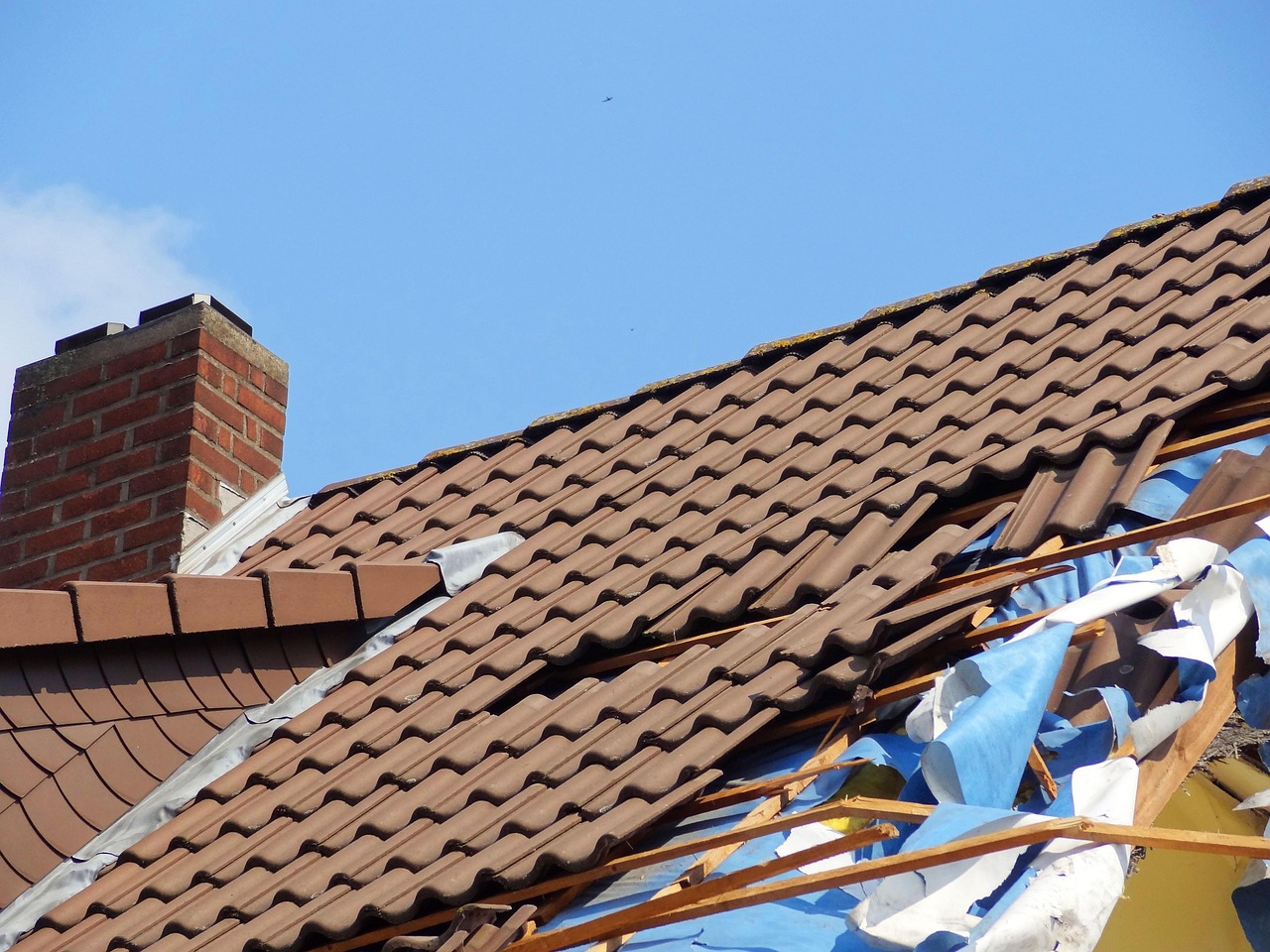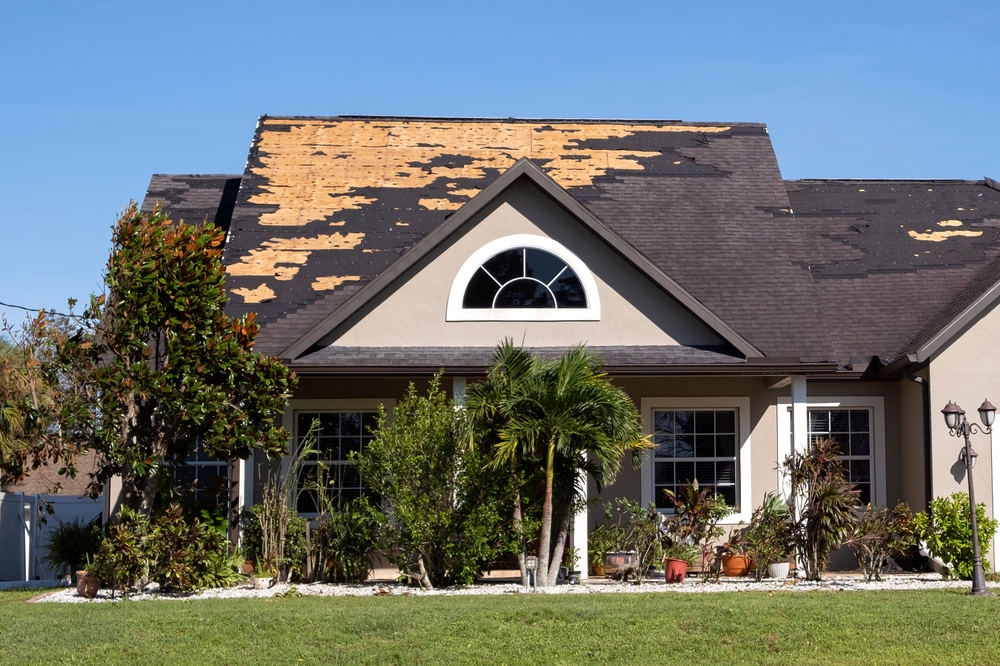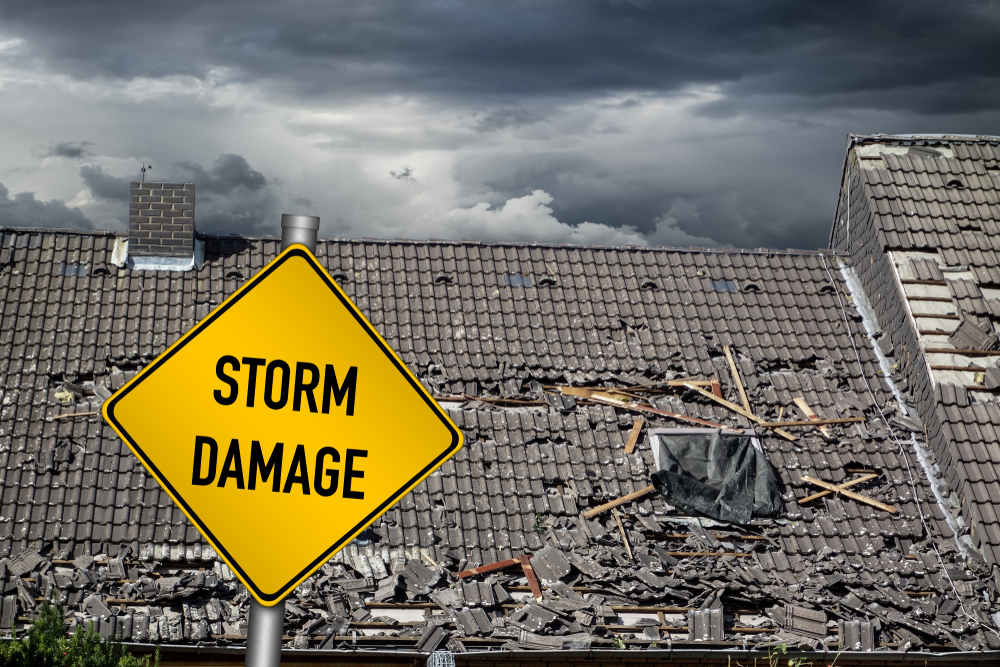


When a storm hits, or a tree falls, damaging your roof, the last thing you want is to hear that your insurance won’t pay for roof damage. Yet, many homeowners in the UK find themselves in this predicament, facing denied insurance claims and unexpected out-of-pocket costs.
In this guide, we’ll explore why your insurance coverage might not include roof repairs and what you can do about it. Whether you’re a homeowner trying to understand your policy or a property manager dealing with multiple properties, this post is for you.
Insurance policies are complex, with terms and conditions often confusing policyholders. When it comes to roof damage, understanding the details of your home cover policy is crucial. Many policies include roof repair and replacement, but significant caveats can lead to cases where insurance won’t pay for roof damage. Coverage usually depends on the type of damage, the condition of your roof, and the specific terms of your insurance policy.
Most UK home insurance policies cover sudden and accidental events like fire, lightning, and storm damage claims. However, each policy is different, so reviewing your terms carefully is essential. Look for terms like “covered peril,” which refers to events your policy specifically protects against. Examples might include storm or wind damage, falling objects, and fire. Confirm with your insurer what qualifies as a covered event to avoid finding yourself in a situation where insurance won’t pay for roof damage.
Read more about whether roof leaks are covered by insurance.
Having a claim denied can be frustrating, but it helps to understand the common reasons for refusals. Knowing why insurers deny claims can help you avoid issues and take preventive steps.
Wear and Tear and Gradual Deterioration
Insurers generally won’t cover roof damage caused by natural ageing or gradual wear, as they expect homeowners to maintain their roofs. Over time, exposure to the elements can cause issues like leaks or damaged tiles, but this slow deterioration is typically excluded from policies. Regular maintenance is essential to keep your roof in good condition and avoid instances where insurance won’t pay for roof damage.
Maintenance-Related Issues and Pre-Existing Damage
If damage results from a lack of maintenance, it’s usually the homeowner’s responsibility. Insurers require evidence that roofs are routinely checked and repaired to prevent issues from escalating. Similarly, claims related to pre-existing damage are often denied, adding to cases where insurance won’t pay for roof damage. Insurers may inspect your roof to confirm the damage is new and hasn’t been unattended.
Delayed Reporting and Excluded Causes
Insurers expect damage to be reported promptly, as delays can lead to further issues they may refuse to cover. Additionally, some causes of roof damage, such as infestations or defects in roofing materials, are often excluded. Always report roof issues quickly to avoid scenarios where insurance won’t pay for roof damage, and check if your roof’s materials are covered by a product warranty in case of defects.
What Oakleafe Clients Say:

A common concern for homeowners is whether their insurance policy covers a roof leak. Generally, it is likely covered if the leak results from sudden and accidental damage, like storm damage or falling debris. However, it may not be covered if the leak stems from gradual deterioration due to lack of maintenance. Understanding these details can help you avoid situations where insurance won’t pay for roof damage.
Your excess, the amount you pay out-of-pocket before insurance coverage begins, directly impacts your claim outcomes. While higher excesses lower your premiums, they may also influence whether claiming minor repairs is worthwhile. Knowing how your excess applies, especially in the case of roof repairs, is critical to managing expectations around situations where insurance won’t pay for roof damage.
The age and condition of your roof play a significant role in its eligibility for insurance coverage. Insurers often have specific guidelines regarding when a roof is considered “too old” or “too damaged,” leading to instances where insurance won’t pay for roof damage.
Receiving a letter stating that insurance won’t pay for roof damage can feel disheartening, but it doesn’t necessarily mean the end of your claim. Here’s what you can do:
Step 1. Review the Denial Letter Carefully
Understand the specific reasons your claim was denied by reviewing the letter closely. This can guide your next steps and help you prepare an effective appeal.
Step 2. Gather Evidence
Collect documentation that supports your claim, such as photographs of the damage, repair estimates, and inspection reports. Strong evidence can help if you appeal the decision, especially if it counters the reasons given for the denial.
Step 3. Understand Your Rights as a Policyholder
Familiarise yourself with your rights under UK insurance regulations. Many policyholders successfully appeal claims by understanding their rights and ensuring they meet all requirements.
If you decide to appeal, preparing a well-documented case is essential.

Local building codes and roofing standards often affect insurance coverage for repairs and replacements.
Compliance Requirements
Ensuring that roof repairs meet local building standards is essential, as non-compliance can lead to claim issues. Insurers typically require that repair work aligns with UK regulatory standards.
Repair Standards
Adhering to local repair standards can help prevent disputes with insurers. Familiarising yourself with these standards can also streamline future claims.
Policy Conditions Related to Building Codes
Review your policy for any conditions regarding building codes, as failure to comply could lead to denied claims. Ensuring your roof meets these criteria helps protect against unexpected denials.
Taking proactive steps now can help you avoid future situations where insurance won’t pay for roof damage.
Regular Inspections
Seasonal inspections can help identify minor issues before they escalate. Each season, from heavy rains to frost, presents specific challenges, so keeping your roof inspected year-round is essential for durability.
Address Repairs Promptly
Quickly addressing minor repairs can prevent additional damage and lower long-term repair costs. A well-maintained roof also ensures eligibility for continued insurance coverage.
Maintaining Eligibility for Home Cover
Keeping your roof in good condition ensures it remains eligible for insurance coverage. Regular maintenance minimises risks and helps avoid potential coverage issues.

If your home cover doesn’t extend to roof damage, you have other options:
In summary, knowing the ins and outs of your home insurance policy is crucial to ensuring you’re covered for roof damage when you need it most. Here are the key takeaways:
Proactive maintenance and a solid understanding of your policy are your best defences when protecting your property. If you encounter challenges with your claim, consulting a professional can provide added support and options to help safeguard your home and investment.
Oakleafe Claims have represented policyholders and managed their insurance claims since before the First World War. We have vast expertise and experience in both domestic and commercial insurance claims with thousands of satisfied policyholders who have received their deserved insurance settlement.
What Oakleafe Clients Say:



Please complete the form and one of our insurance claim professionals will call you back ASAP